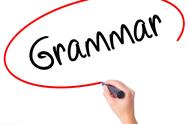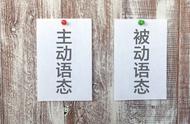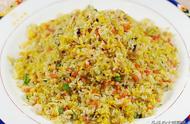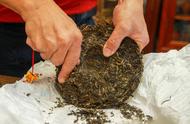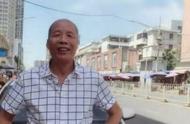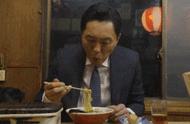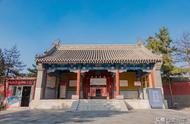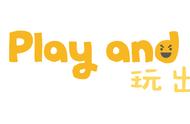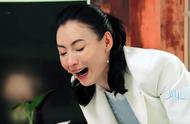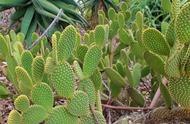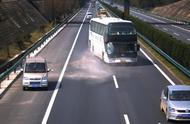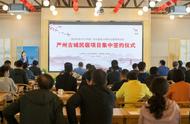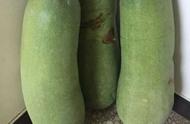
1.被动语态中谓语动词的基本构成:
be done
2.八种时态的被动语态:(变 be 的时态即可,done不动)
1)一般现在时:am / is / are done
①People grow rice in the south of the country.
Rice is grown in the south of the country.
②The school doesn't allow us to enter the chemistry lab without a teacher.
We are not allowed to enter the chemistry lab without a teacher.
2)一般过去时:was / were done
①They agreed on the building of a new car factory last month.
The building of a new car factory was agreed on last month.
②The students didn't forget his lessons easily.
His lessons were not easily forgotten
3)一般将来时:will be done
①They will send cars abroad by sea.
Cars will be sent abroad by sea.
②They will give plenty of jobs to school-leavers.
Plenty of jobs will be given to school-leavers.
4)一般过去将来时:would be done
①The manager said they would complete the project by the end of the year.
The manager said the project would be completed by the end of the year.
② The workers told me they would mend the car as soon as possible.
The workers told me that the car would be mended as soon as possible.
5)现在进行时:am / is / are being done
①The radio is broadcasting English lessons.
English lessons are being broadcasted on the radio.
② We are painting the rooms.
The rooms are being painted.
6)过去进行时:was / were being done
①The workers were mending the road.
The road was being mended.
②This time last year we were planting trees here.
Trees were being planted here this time last year.
7)现在完成时:have / has been done
①Someone has told me the sports meeting might be put off.
I have been told the sports meeting might be put off.
②He has brought his book here.
His book has been brought here.
8)过去完成时:had been done
①When I got to the theatre, I found they had already sold out the tickets.
When I got to the theatre, I found the tickets had already been sold out.
② The whole country was very sad at the news of his death; people had considered him to be a great leader.
The whole country was very sad at the news of his death; he had been considered to be a great leader
3.含有情态动词的被动语态:情态动词 be done
①You must hand in your compositions after class.
Your compositions must be handed in after class.
②He can write a great many letters with the computer.
A great many letters can be written with the computer by him.
4.被动语态的使用情况:
1)当不知道或没有必要指出动作的执行者时,这时往往不用by 短语。
“Mr. White, the cup was broken after class. ”
2.突出或强调动作的承受者,如果需要说出动作的执行者,用by 短语。
These records were made by John Denver.
5.主动语态变被动语态的方法:
1)把主动语态的宾语变成被动语态的主语。
2)把主动语态的谓语变成被动语态的be 过去分词,时态要与原句保持一致。
3)把主动语态的主语变为介词by 的宾语,放在被动语态里谓语动词之后,by 短语可以省略。
My aunt invited me to her dinner party.
→I was invited (by my aunt ) to her dinner party.
The school set up a special class to help poor readers.
→A special class to help poor readers was set up in the school.
6.语态转换时应注意的问题:
1) 把主动语态变为被动语态时,其谓语动词的时态要与原句时态保持一致,其谓语动词的数要与新主语保持一致。
We have bought a new computer.
→A new computer has been bought. (正确)
→A new computer have been bought. (错误)
2)含有双宾语的主动句变被动句时,可分别将其中的一个宾语变为主语,另一个不动,一般变间接宾语为主语时比较多。
My uncle gave me a present on my birthday.
→I was given a present on my birthday.
如果把直接宾语(指物)改为主语,则在间接宾语(指人)前加适当的介词,如上句还可以说
→A present was given to me yesterday.
3) 由动词 介词或副词构成的短语动词,要把它们作为整体看,即把它们看成一个及物动词,介词或副词不可拆开或漏掉。
The patient is being operated on.
The problem is solved. It needn't be talked about.
His request was turned down.
The sports meet will be put off because of the bad weather
4)带复合宾语(宾语 宾补)的动词改为被动语态时,一般把主动结构中的宾语改为主语,而宾语补足语保留在谓语动词后面。
We always keep the classroom clean.
→The classroom is always kept clean.
She told us to follow her instructions.
→We were told to follow her instructions.
注意:在see, watch, hear, notice, listen to, look at, make, feel等动词后作宾语补足语的动词不定式都不带 to,但改成被动语态后必须还原to。
We often hear him play the guitar.
→He is often heard to play the guitar.
5)当主动句的主语是nobody, no one等含有否定意义的不定代词时,被动句中将其变为anybody, 作by的宾语,并将谓语动词变为否定的被动语态。
Nobody can answer this question.
误:The question can be answered by nobody.
正:The question can not be answered by anybody.
6)当否定句中的宾语是anything, anybody, anyone等不定代词时,在被动句中应将其分别变为nothing, nobody, no one作主语,并将谓语动词变为肯定的被动语态。
They haven't done anything to make the river clean.
误:Anything hasn't been done to make the river clean.
正:Nothing has been done to make the river clean.
7)以who为主语开头的疑问句,变被动时,用by whom放在句首。
Who wrote the story?
误:Who was the story written?
正:By whom was the story written?
8)有些动词既是及物又是不及物,当它们和well, badly, easily等副词连用时,表示主语内在品质或性能,是不及物动词,用主动表示被动,这时不用被动语态,常见的有:write, read, clean, sell, wash, cook 等。
The cloth washes easily. 这布很好洗。
The new product sells well. 这新产品很畅销。
The books sell well. 这些书销量很好。
9)下列情况主动句不能改为被动句。
①感官系动词一般用主动形式表示被动意义,如:feel,look, seem, taste, sound。
— Do you like the material?
— Yes, it feels very soft.
②不及物动词没有被动语态,如:rise, happen, succeed, remain, lie等。
When we got to the top of the mountain, the sun had already risen.
After the earthquake, few houses remained.
③宾语是反身代词,相互代词,同源宾语,不定式,v-ing形式及抽象名词等,不能变为被动句子的主语。
I taught myself English.
误:Myself was taught English.
We love each other.
误:Each other is loved.
被动语态习题
考点点拨
英语中有些动词不表示动作,而是表示某种状态或情况,通常不用于被动语态,如cost, fit, last, own, fail等。
在主动语态中,hear, see, notice等感官动词和make, have, let等使役动词后跟不带to的动词不定式作宾语补足语,但在转换为被动语态时,该不定式前要加to。
某些感官动词加形容词可表被动意义,如:feel, look, smell, sound, taste等。
某些不及物动词后加副词,也可表被动意义,如:lock, open, read, sell, cut等。
含短语动词的被动语态,短语中的介词或副词不能丢掉。
把直接宾语改为被动语态的主语时,间接宾语前要加介词to / for。
不及物动词和不及物动词短语不能用于被动语态,如:appear, die, fall, happen, come out, take place等。
经典习题
1.—Wow, your silk dress looks so beautiful! How much is it?
—Well, it me $50.
A. cost
B. was cost
C. spent
D. was spent
2.—Sandy was made by some boys.
— Oh, sorry to hear that.
A. cry
B. to cry
C. cried
D. to crying
3.—These oranges look ugly, but they very sweet.
— If so, I’d like to buy some.
A. tasted
B. were tasted
C. taste
D. are tasted
4.—Don’t you like the car? It so well.
—I like it a lot, but I just can’t afford it.
A. sells
B. is sold
C. sold
D. was sold
5.As is known to all, the 2022 Winter Olympics in China.
A. took place
B. will take place
C. were taken place
D. will be taken place
参考答案:ABCAB
常见几种时态的被动语态练习
01
含情态动词的被动语态
讲一讲
含有情态动词的被动语态的结构为:情态动词 be 动词的过去分词 ( by 动作的执行者)。如:
Your homework should be finished before 9 pm.
The plant needn’t be watered every day.
Must the room be cleaned twice a day, Mom?
When can my computer be repaired, Mr. Wang?
表示被动意义的特殊结构:
1. read, ride, write, sell等作不及物动词时,常用主动形式表示被动意义。
2. look, smell, taste, feel, sound等表感觉的连系动词也常用主动形式表示被动意义。
练一练
一、用括号内所给动词的适当形式填空。
1.Many more trees should (plant) in the town.
2.Must the work (finish) by 6:30 this afternoon?
3.—How often do I need to feed the dog?
—It must (give) food three times a day.
4.The stars can (see) clearly this evening.
5.Tables can (make) of stone or wood.
二、把下列句子改为含有被动语态的句子。
1.We should clean our teeth twice a day.
2.You must hand in your homework before class.
3.You can hang these old pictures in the living room.
4.Students can keep the dictionaries for three weeks.
5.We should make some rules to stop the kids from throwing rubbish.
☆☆☆☆☆☆☆☆☆
参考答案:
一、1.be planted
2.be finished
3.be given
4.be seen
5.be made
二、1.Our teeth should be cleaned twice a day.
2.Your homework must be handed in before class.
3.These old pictures can be hung in the living room.
4.The dictionaries can be kept for three weeks by students.
5.Some rules should be made to stop the kids from throwing rubbish.
02
一般现在时的被动语态
讲一讲
英语中有两种语态,即主动语态和被动语态。主动语态表示主语是动作的执行者,被动语态表示主语是动作的承受者。
▲ 一般现在时的被动语态结构为is / am / are 及物动词的过去分词 ( by 动作的执行者),句中常含有often, usually, every day等时间状语。
▲ 在将主动语态变为被动语态时,可参考以下例句:
Jenny① cleans② the room③ every day.
→The room③ is cleaned② by Jenny① every day.
把主动句中的宾语③变为被动句中的主语;
把主动句中的谓语动词②(cleans)变为被动句中的谓语(is cleaned)。be的形式根据被动句中主语的人称和数以及原主动句中动词的时态来确定。
把主动句中的主语①放在介词by之后作宾语。主语若是代词,将主格改为宾格。在无须说明动作的执行者或需强调动作的承受者时,by短语可以省略。如:
People grow rice in the south of China. → Rice is grown in the south of China.
练一练
把下列句子改为含有被动语态的句子。
1.Some big boys often laugh at the little girl.
2.A lot of people speak Chinese around the world.
3.Millions of people enjoy the Great Wall.
4.My grandpa waters these flowers every morning.
5.Everyone considers Dora to be the best student in the class.
6.People use chopsticks for eating noodles in China.
7.The students always keep the classroom clean.
☆☆☆☆☆☆☆☆☆
参考答案:
1.The little girl is often laughed at by some big boys.
2.Chinese is spoken by a lot of people around the world.
3.The Great Wall is enjoyed by millions of people.
4.These flowers are watered by my grandpa every morning.
5.Dora is considered to be the best student in the class.
6.Chopsticks are used for eating noodles in China.
7.The classroom is always kept clean by the students.
03
一般过去时的被动语态
讲一讲
一般过去时的被动语态结构为:was / were 及物动词的过去分词 ( by 动作的执行者)。如:Three trees were watered by Alan yesterday.
将主动语态变为被动语态时,需注意以下几点:
有些动词如tell, give, send, lend, show, teach等后接双宾语,变为被动语态时,将间接宾语提前变为被动语态的主语,直接宾语不动;如果将直接宾语提前,则需要在间接宾语前加上to或for。如:
Mary gave Miss Lin a bunch of flowers.
→ Miss Lin was given a bunch of flowers by Mary.
→ A bunch of flowers was given to Miss Lin by Mary.
若动词后跟省去to的动词不定式作宾语补足语,在变为被动语态时应加上to。如:
We saw a stranger walk into the teacher’s office.
→ A stranger was seen to walk into the teacher’s office.
“动词 介词/副词”构成的短语动词,在变为被动语态时,需要保留后面的介词或副词。如:
The little girl took good care of her sick grandma.
→ The little girl’s sick grandma was taken good care of by her.
练一练
把下列句子改为含有被动语态的句子。
1.Alice sent me a postcard last week.
2.Mom asked Jack not to spend too much time on computer games.
3.The workers built the teaching building six years ago.
4.All the students talked about the project earlier this morning.
5.We heard Liu Feng read English books under the tree.
☆☆☆☆☆☆☆☆☆
参考答案:
1.I was sent a postcard by Alice last week. / A postcard was sent to me by Alice last week.
2.Jack was asked not to spend too much time on computer games by Mom.
3.The teaching building was built by the workers six years ago.
4.The project was talked about by all the students earlier this morning.
5.Liu Feng was heard to read English books under the tree.
,



